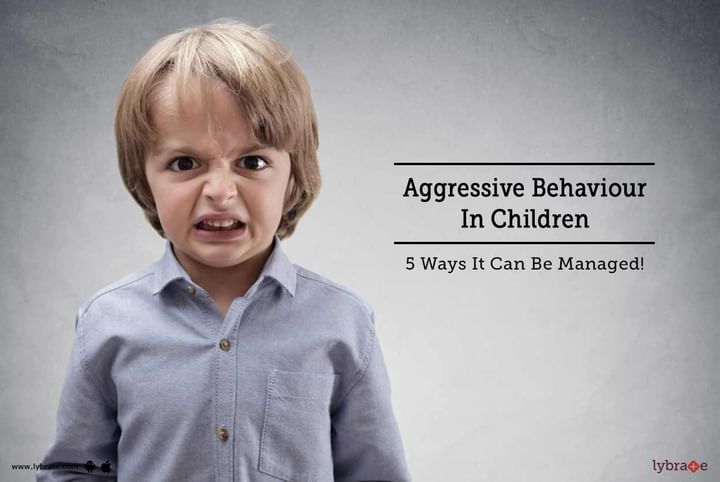Get the App
For Doctors
Login/Sign-up
Last Updated: Jan 10, 2023
BookMark
Report
Aggressive Behaviour In Children - 5 Ways It Can Be Managed!
Dr. Pooja Anand SharmaPsychologist • 20 Years Exp.Ph.D - Psychology, M.Sc. - Counselling and Psychotherapy, M.A - Psychology, Certificate in Psychometric Testing, Basic Course in Integrated Hypnotic Modality for Behavioral Resolution, Certificate in Cognitive Behavioral for Couple, B.Ed- Psychology Hon.
Anger is a normal emotion. Children are as susceptible to anger as are adults. However, children may not understand how to deal with their anger properly. This can result in tantrums and violent behaviour. Telling a child not to get angry is not the solution to this problem. Instead, a child must be taught how to channelize his or her anger. Here are 5 tips that could help deal with aggressive behaviour.
- Do not use physical punishments as a form of discipline: Children inculcate actions they see at home. While you may hit your child out of frustration when he or she does something wrong, the child may see this as an acceptable form of venting anger. Thus, hitting your child can indirectly reinforce a child’s aggressive behaviour. Just as you do not expect your child to go about hitting other people, do not hit him yourself.
- Develop a feeling vocabulary: A child’s aggressive behaviour is usually the result of frustration at not being able to explain what he or she may be experiencing. Thus, encourage your child to develop a vocabulary to speak his mind. Teach them to use words like angry, frustrated, irritated and anxious. When your child says that he or she is angry, do not ignore him but encourage him to talk it out. You could also encourage them to find other creative outlets for their anger such as drawing and painting.
- Praise good behaviour: All children seek appreciation. When your child deals with anger is a good way, praise him and reinforce the behaviour. This lets your child know that his behaviour is being noticed. Tell your child it is ok to be angry as long as it is dealt with in the right way.
- Set firm limits: Children need limits to know what sort of behaviour is acceptable and what isn’t. These limits should be kept very clear and consistent. The child’s teachers and other caregivers should also be made aware of these rules along with the response to be given if the child breaks a rule. When a child does cross the limits set by you, they should be immediately reprimanded so that they understand their mistake.
- Let your child cool off: It is no use trying to explain why something the child has done is wrong when they are in a state of anger. Instead, give them time to cool down by telling them to go to their room or sit down someplace. Once the child has cooled off, explain why his or her behaviour was wrong and discuss ways he or she could have dealt with the situation better.
In case you have a concern or query you can always consult an expert & get answers to your questions!



+1.svg)
